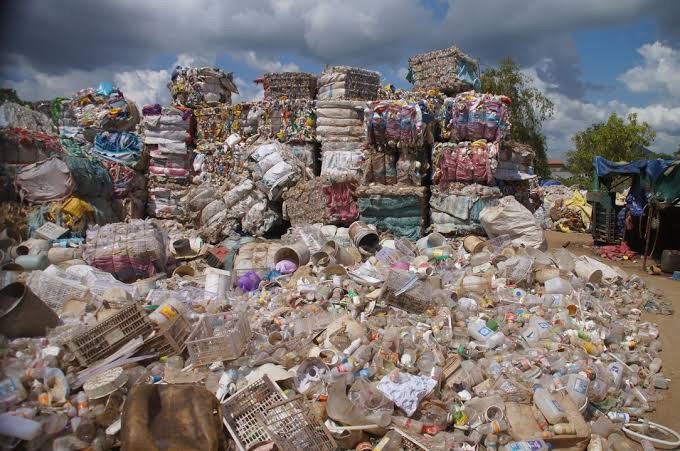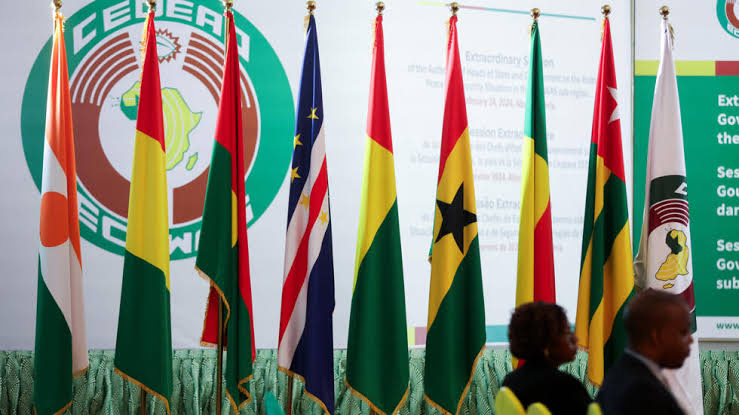The World Bank Group and Black Forest, which supports plastic management and circular economy measures in the West African region, said that by 2026, West Africa’s plastic consumption is expected to reach 12,000 kilotonnes.
The groups made the prediction during an ongoing meeting of the delocalized joint committees on agriculture, environment and natural resources/energy, and mines/infrastructure of the Economic Community of West African States (ECOWAS) Parliament in Winneba, Ghana.
In 2018 alone, the region generated 6.9 million tonnes of plastic waste, 80% of which was concentrated in coastal areas untreated. Darko Akomea Kwadwo, groups’ representatives, said the situation calls for stricter regulations and improved waste management and recycling systems, especially in high-risk coastal areas.

The joint session theme was ‘Plastic Waste Management: Challenges and Prospects in Implementing Community Policy’, and a panel discussion yesterday brought together experts in related fields to discuss the way forward for West Africa.
Kwadwo said: “Across West African countries, more than 80 percent of plastic waste is not collected by waste management systems.
“Nigeria, Côte d’Ivoire and Ghana lead West Africa in total waste generation. The economic growth of Nigeria and Ghana is directly related to high levels of plastic waste and imports, highlighting the economic impact on plastic consumption.
“Despite Nigeria’s production capacity, high imports in countries such as Togo suggests a reliance on imported plastic goods and gaps in local manufacturing”.
He noted that the biggest challenge remains in some countries to translate existing frameworks into concrete measures. The challenge for the region is a joint effort to address plastic waste.
An overview of the various policies and mechanisms the group has introduced, including bans on single-use plastics, taxes on plastic imports, exports and packaging, deposit and refund systems, subsidies for recycled plastics and extended producer responsibility.

He also said the group’s support projects aim to build a comprehensive framework to combat plastic pollution and promote a circular economy in West Africa. It will address the challenge of growing plastic use as a result of rapid regional development and help develop a regional plastics action plan.
The group also made preliminary recommendations, including the need for harmonized and mandatory policies, the adoption of circular economy models, investment in waste management infrastructure, promoting private sector engagement and innovation, improving research and capacity building, and supporting public education campaigns.
Mr. Nadjo N’Ladon, an environmental expert and trainer from Togo, in a presentation titled “‘Health impact of plastic pollution in West Africa and plastic waste management within the ECOWAS member states”, reiterated the repeated warning that Togo’s contacts are: “The use of plastic products together with food poses health risks due to additives in their chemical composition.
“Wastes such as sachets already contain recycled materials and as such, should not be used for packaging food, especially with hot food which melts the plastic and mixes it with the food. It can result in food poisoning.
“Furthermore, the practice of incinerating plastic waste at landfills and concessions is a source of toxic emissions, causing cardiovascular and respiratory diseases, cancer, reduced intelligence quotient, causes stunted growth and toxicity to reproductive organs”,he said.
The speaker also spoke about the impact of plastic waste on the environment, livestock, agriculture and water resources, and suggested that to address the situation, the region should consider implementing small-scale pilot projects in areas where plastic management is not yet fully developed. Waste is increasing. In addition, a funding mechanism should be defined and set up to achieve the goal. In addition, it is necessary to develop an environmentally friendly recycling process for plastic waste and to implement a research program on plastics and their handling.

































